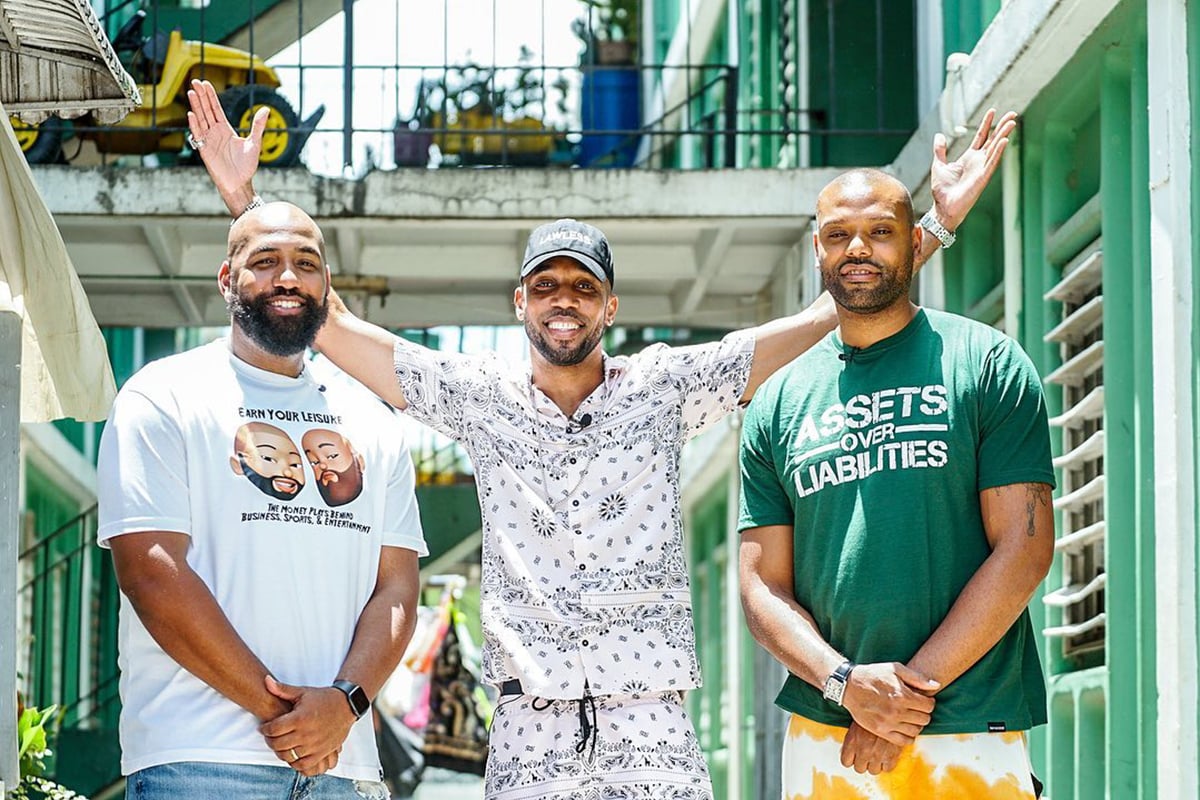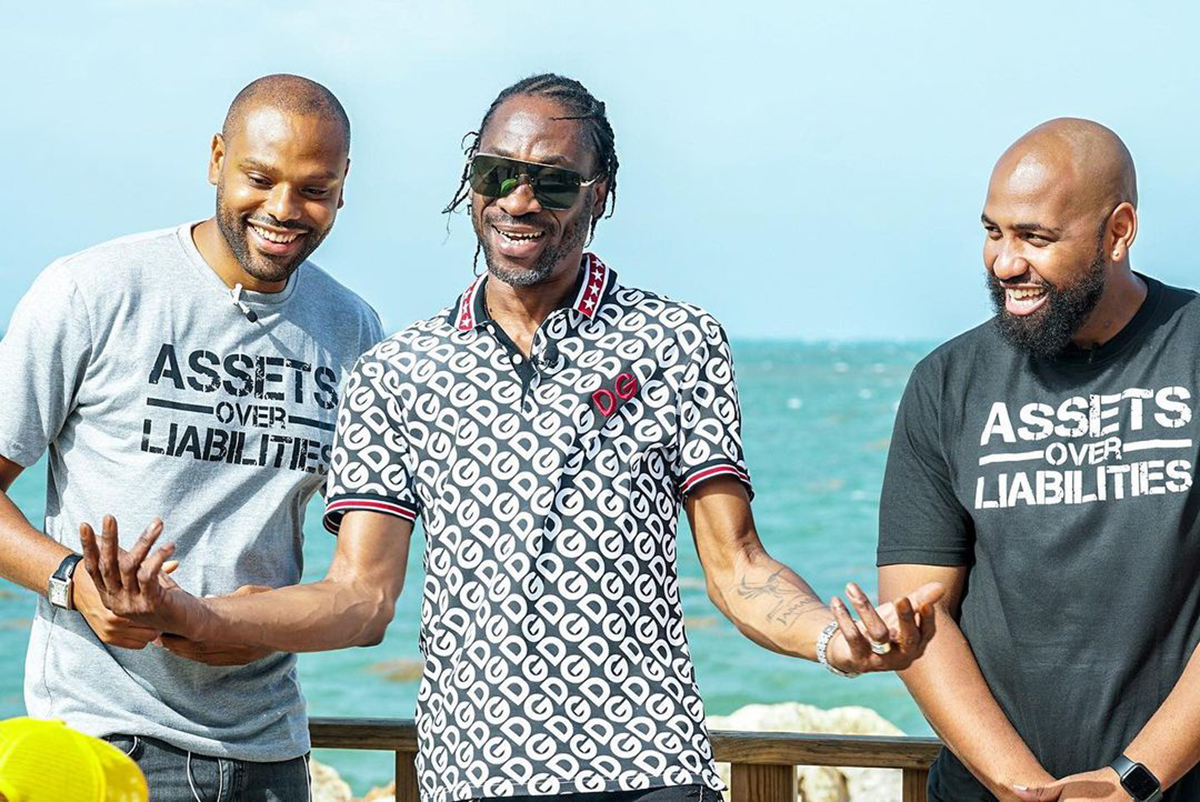Earn Your Leisure’s Troy And Rashad Talk With JR Watkis About Jamaican Music Connection With Hip Hop And More

Rashad Bilal and Troy Millings’ Earn Your Leisure podcast has been a top podcast in Jamaica and other parts of the world. Their impact on hip-hop culture runs deep but they also have a Jamaican connection.
In this interview, we talk about their top Reggae and Dancehall songs and how artists might crossover in America plus much more.
Tell me about your background?
Rashad: I am Rashad and he is Troy, we started as a podcast but the best way to describe it is a financial literacy movement that covers everything from investing to business entrepreneurship and culture.
JR: You (Troy) are of Jamaican heritage?
Troy: Yes my whole family is from Jamaica so anytime I get to come back it is always special.
JR: You have integrated into the Hip Hop space, although you have a Jamaican background, how were you able to do that?
Troy: was born in the Bronx, if you ever been to New York there is a predominantly Jamaican culture. I was always teaching and what we do now is still educating. We knew that if we set things and broke things down we know the world would be receptive to that?
JR: How did you both link up?
Rashad: We grew up together, you meet childhood friends and sometimes you keep those friendships for life.
JR: You have a lot of Hip Hop guests on your podcast and there is a discussion going on about who started Hip Hop, Jamaicans or Americans?
Troy: Hip Hop was created in the Bronx by Khool Herc who is of Jamaican descent so technically it is a Jamaican who started Hip Hop. Jamaica has a large influence on the culture.
Rashad: New York is a melting pot, Jamaicans have been there from the beginning. KRS1 is Jamaican, Notorious BIG is Jamaican but there are other people involved in building the bricks of Hip Hop such as Puerto Ricans etc. We all come from Africa, all of that is a variation of drum patterns and rhymes. We are spread out all over the world in different diaspora but we have a lot more in common than we have not in common.

JR: You have many fans here in Jamaica, have you considered doing a live show out here?
Rashad: We got to connect offline. It was too short notice this time but we gotta come back and do something here.
JR: How do you suggest Jamaican artists break into the international scene?
Rashad: I definitely would take the path of getting hot in the areas Jamaicans are spread out in the diaspora. Jamaica’s influence is big in New York, so be popular in your country first but after that, I would reach out to artists, not even major artists but up and comers in America like how Popcaan collaborated with Dave East. He has a buzz in New York and Popcorn is hot in Jamaica so that makes sense. Dancehall and reggae are not getting as much radio play as before in America and that’s because there isn’t a lot of crossover work.
Troy: Get hot where you are and the world will find you.
JR: Do you think artists should try to be like the Americans or stay authentic?
Rashad: Definitely authentic. You can be authentic to who you are and add some elements that will make you more acceptable. Just like when we come to Jamaica we connect to people who are in Jamaica and embrace the culture here.
Troy: Stay authentic to who you are because the people who are in these cities are from where you are and they want to hear you as you are.
JR: What are your thoughts on cultural appropriation, white people doing reggae for example?
Rashad: it’s a thin line between appreciation and appropriation. We are all influenced by different things so I look at it as paying homage, but taking advantage of something and misusing it that’s a different thing. Even in the business side of things our culture moves different parts of the world. By ‘our’ I mean all black people, and we give so much stuff away and we never benefit. It’s important to keep exploring our culture and spread that love but the creators of it (culture) need to profit.
Troy: That’s why what you are doing is important and what we are doing is important because we are going to share the culture but we have to take care of our people first.
JR: How do you suggest other creatives monetize their culture?
Rashad: Rappers in America are having a hard time monetizing their craft, but we need them and they need us. The first thing is for entrepreneurs to work with athletes and entertainers to show them how to make higher ticket items in a community like merchandise or subscriptions services. Jim Jones for example gives people virtual engineering services. It’s about thinking outside the box but online is helping. You don’t necessarily need millions of fans to be wealthy, you just need a niche group. When Nipsey Hussle had his $100 mixtape people laughed at it but that catapulted him into mainstream success. It’s about figuring out how to have higher ticket items where your die-hard fans rock with you.
Troy: It’s all about innovation. Ryan Leslie sold an experience for $40. All you need is a core following that is dedicated to the message that you are giving. Usain said that he realized that if he danced when he got on the track he would separate himself because everyone else is nervous. So he provided a lot of value with the dances after winning all the races.
Who are your top reggae-dancehall artists?
Rashad: Bob Marley, Damian Marley, Popcaan, Vybz Kartel, Beenie Man and Bounty Killer.
Troy: I am old school so Beres Hammond, Barrington Levy, Shabba was huge in New York, Beenie Man, Bounty Killer, Sean Paul…I remember Ninja Man was a thing growing up, Garnett Silk, Patra, Lady Saw.
Troy and Rashad thank you so much
Thank you JR love what you’re doing!!
For the full conversation listen to World Music Views Podcast on Apple or wherever you listen to podcasts.
